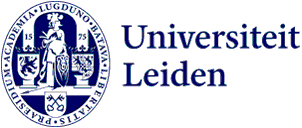Bart Schermer appointed as Professor of Privacy and Cybercrime
As of 1 November 2021, Bart Willem Schermer has been appointed as Professor of Privacy and Cybercrime at eLaw – Center for Law and Digital Technologies.

In his teaching and research, Schermer focuses on the topics of privacy and cybercrime, and more in particular on the intersection between these areas: the aspects related to privacy law in the investigation of crime and cybercrime. 'What these two topics have in common is that they are subject to constant change due to rapid developments in digital technologies', Schermer says. 'Digital technologies like the internet, artificial intelligence and augmented reality, are changing how we interact, the balance of power and our view of the world. The normative and organising role of the law is of great importance in steering the changes in society arising from these new technologies in the right direction.'
New technologies have enabled new types of crime and investigative methods must respond to that. Methods such as digital intrusion, the use of artificial intelligence and taking over dark markets are important in combating crime and cybercrime, but also raise questions about the protection of privacy. 'Besides “classic” forms of cybercrime like hacking, phishing and DDos attacks, digital technologies also facilitate new harmful and undesirable behaviour – for example, virtual vandalism or deep fakes. The question is whether, and if so how, such behaviour needs to be made an offence.'
Zero sum game
In relation to education, Schermer believes it is important for students to understand how new, digital technologies are changing existing relationships and structures in society. 'Privacy is always a major topic in the discussion. I try to show students that privacy and security are not values that strike each other out in a zero sum game, but values that must be pursued equally.'
Schermer joined Leiden University in 2003, first as a researcher and later as an Assistant Professor and Associate Professor. In addition to his appointment at the University, he is a partner and cofounder of the consultancy firm Considerati, a fellow at the E. M. Meijers Institute for Legal Studies, a member of the cybercrime expert group for the Court of Appeal in The Hague, and a member of the Human Rights Committee of the Dutch Advisory Council on International Affairs (AIV).
